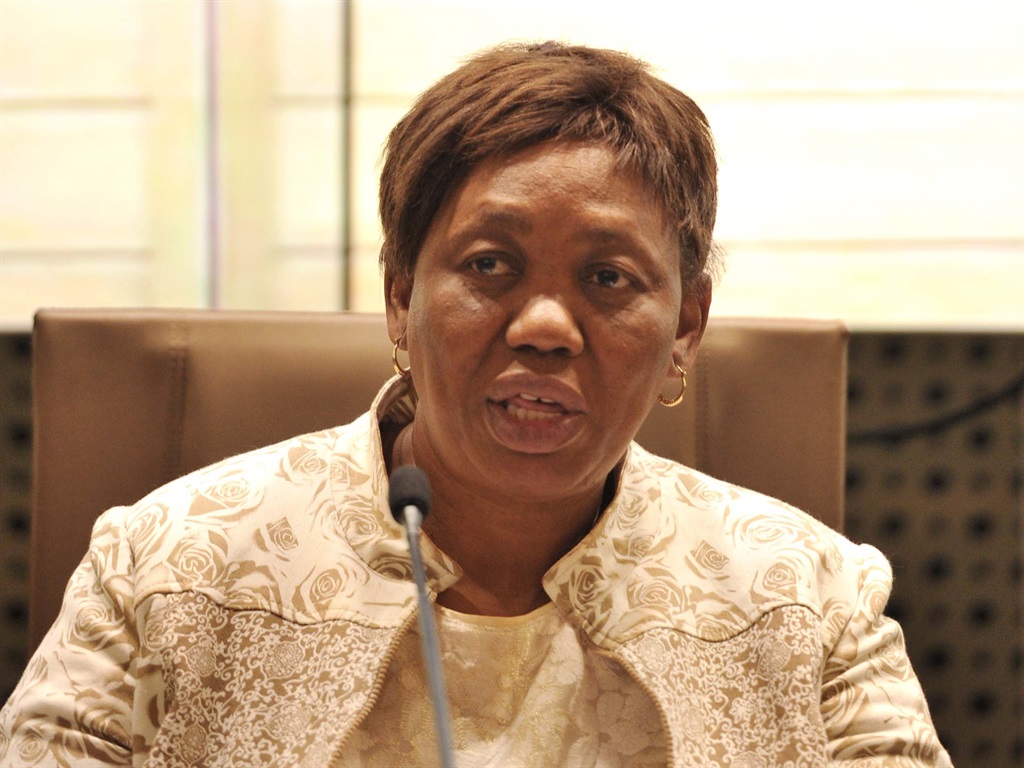
Despite the Eastern Cape being the worst performing province for five consecutive years when it comes to matric results, the province still seems not to have any mechanisms in place to reliably assess the performance of its matriculants during the year.
On the other hand, Limpopo - which has consistently been second last - is confident that measures put in place during the year, including its quarterly assessment of the performance of pupils, will yield positive results this year.
Eastern Cape education spokesperson Malibongwe Mtima revealed that quarterly school-based assessments have been in place, but could not be “reliably” used as a yardstick to indicate how the province would perform when the matric results are released.
He said common papers were written in June and September during the course of the academic year.
Mtima could not assist with a break down of how the province performed during the common paper exams.
According to the Eastern Cape education department 2018/19 annual report, the percentage of pupils targeted to pass matric this year is 66%, while next year the estimated target is 70% and 72% in 2020/21.
Although the report does not indicate how pupils performed during the four quarters this year, it indicated that the targeted percentage of pupils passing at bachelor level was 20.1%, while their target for those achieving 50% [MF1] or more in maths is 19% and for those achieving 50% or more in physical sciences is 21%.
Eastern Cape achieved a 65.0% matric pass rate last year below Limpopo, which achieved 65.6%.
In 2016, Eastern Cape achieved 59.3% while Limpopo achieved 62.5%.
In 2013, Eastern Cape achieved 64.9% while Limpopo obtained 71.8%.
In 2014, Eastern Cape achieved 65.4% while Limpopo scored 72.9%.
In 2015, Eastern Cape achieved 56.8% while Limpopo achieved 65.9%.
Only in 2014 (69.7%) and 2015 (60.7%) that KwaZulu-Natal was second last.
Eastern Cape and Limpopo also revealed that they did not approach Free State, which has been a top performing province two times in a row – 88.2% in 2016 and 86.1% in 2017.
This after Free State head of department Advocate Tsoarelo Malakoane told City Press earlier this year that both provinces had approached Free State for help. See:
READ: Teachers, parents and unions the real winners
Last year, all five worst performing districts were in the Eastern Cape.
Mtima said the province did not ask for help from Free State because the provincial and district leaders sit in two committees chaired by the department of basic education (DBE) Minister Angie Motshekga – this was the same reason cited by Limpopo.
Mtima said best practices and information is shared through these committees to improve the performance of pupils in schools.
“We are participating there and also share information. In those sessions provinces benchmark and we share information with all progressive provinces like with provinces that are doing well in maths. School-based assessments are used by schools and these tests are done based on what has been covered in the curriculum by a school. There is no correlation between school-based assessments and matric exams and results. There is no measure used. We can only know after [matric] exams how schools and districts performed. There are no indicators whatsoever.”
Mtima cited last year’s results of school-based assessments saying in March, schools obtained 80% passes but dropped to 35% in June and improved to 49% in September.
He said the province has only been able to heighten its support to all schools and districts by doing revision of the previous year’s papers, conduct extra classes, winter and spring schools.
Mtima said previous year’s results could not be used to measure the following year’s performance.
“We can’t use last year’s results to assess this year’s performance. We can’t judge this year’s children using last year’s results. It’s punitive. We hope that this year’s children will do better. Each year has its own dynamics. We, however, do school analysis. The department had longed developed a targeted approach, for instance, which entails assessing whether pupils understand questions asked,” Mtima said.
Limpopo education spokesperson Sam Makondo said the province also participate in committees chaired by Motshekga, which was a “platform to exchange lessons and ideas”.
He said provinces learn from each other in that sense. “[W]e are in touch will all provinces because there is always something to learn since we are all in the same business of delivering basic education to children that are entrusted to us.”
He said Vhembe, which has been the best performing district since 2014, and Greater Sikhukhune, which has been their worst performer, had partnered with two districts namely Xhariep and Fezile Dabi, which have performed way above 70% since 2014, in the Free State.
“Districts from both provinces learn best practices from each other and share ideas with each other and such a working relationship is continuing on a two way basis,” Makondo said.
He said there has been improvement in the performance of pupils during quarterly assessments.
“The Limpopo Learner Attainment Strategy played a major role in not only strengthening the education system but also improving the performance of pupils. In term three, there was an improvement in the performance of pupils including the two under-performing districts [Greater Sikhukhune and Capricorn]. The reason for the improvement can be attributed to re-organisation of education districts from five to ten operational districts,” Makondo said.
He said the strategy resulted in
*the decrease of the number of pupils in each district and the increase in the number of circuits [which support schools];
*tracking of the performance of pupils across the sector through detailed analysis of quarterly performance of pupils; and
*the continuous development and adjustment of differentiated intervention strategies, adoption of a different approach in the management of underperforming schools and the implementation of the “high-flyers programme” as best practice adopted from Vhembe district.
Makondo said the province is expecting that the performance of pupils will improve in all districts in matric results because of this strategy which was implemented in schools, circuits and districts.
He said the strategy also included Winter, Spring and Saturday enrichment classes as well as radio lessons and camps to nurture pupils with talent and potential.
“The province supported districts by tracking the performance of pupils and the development of differentiated strategies. There were also district accountability sessions with circuit managers and subject advisory service, monthly meetings with district directors where the discussions revolve around the performance of pupils, leadership, management and school governance and we also supported districts during district strategic planning sessions. Term performance indicates improvement in all the districts and we expect all of them to perform above the national norm,” Makondo said.
City Press could not find Limpopo’s education department 2018/19 annual report online, but in their annual performance plan the department indicated the target of 80% for pupils who passed matric this year, 80.3% for 2019/20 and 80.35% for 2020/21.
With regard to pupils passing at bachelor level, the department is targeting 20%, while their target for those achieving 50% or more in maths is 19% and for those achieving 50% or more in physical sciences is 20%.




 Publications
Publications
 Partners
Partners








